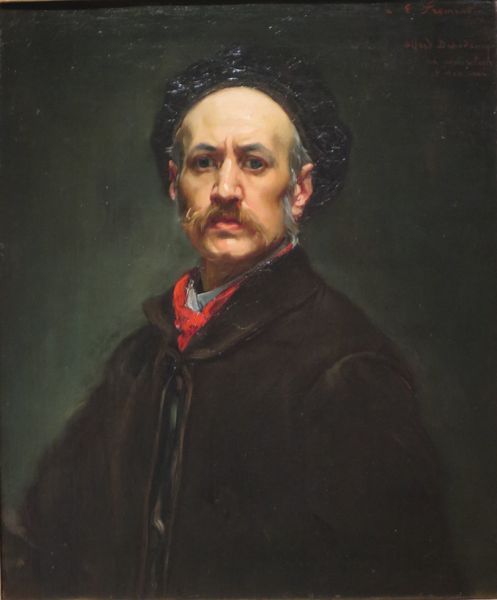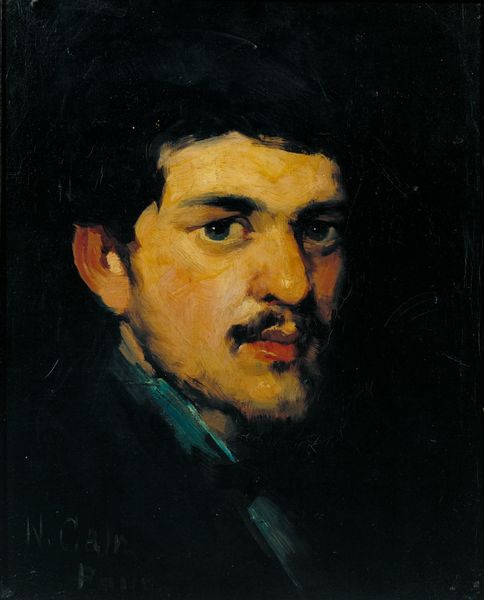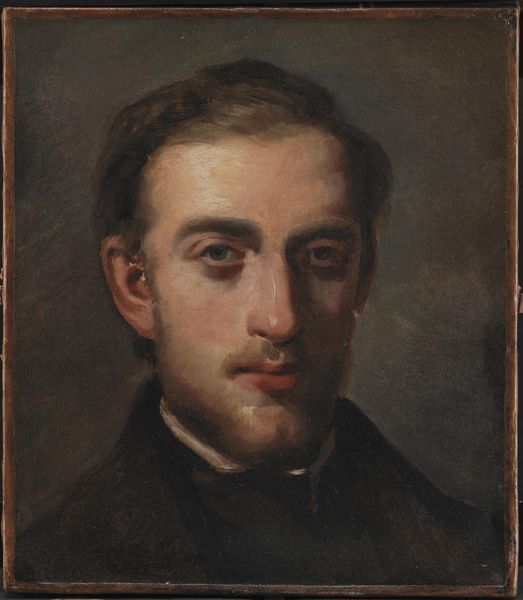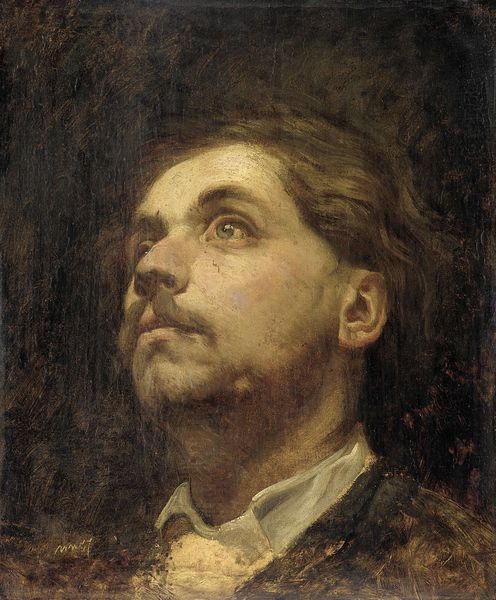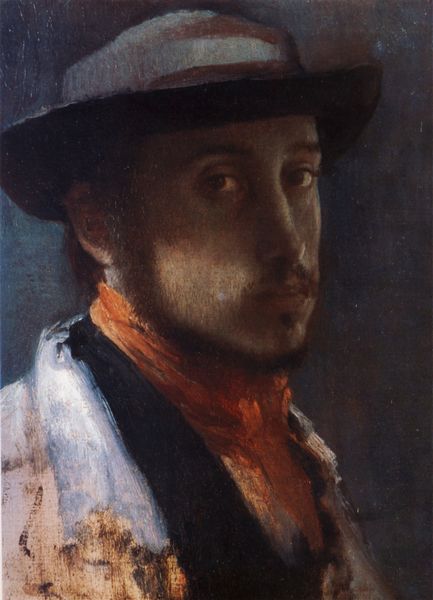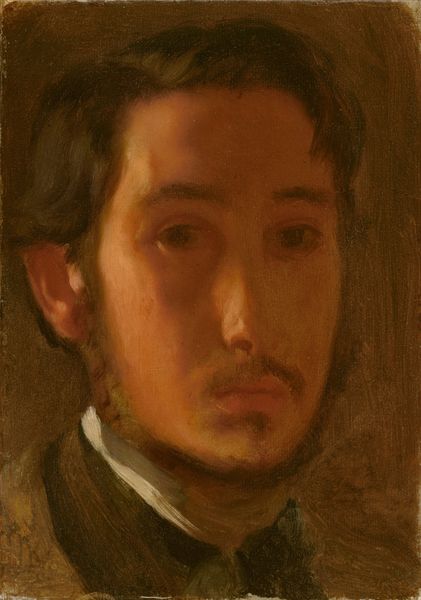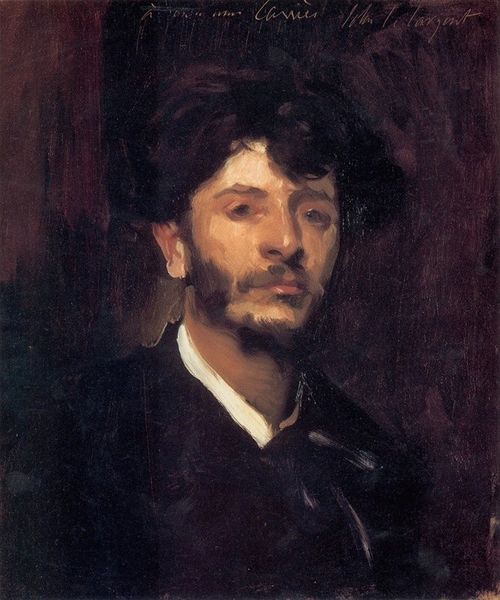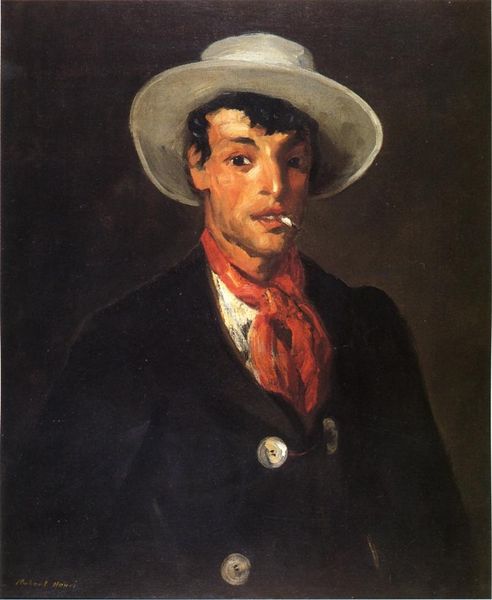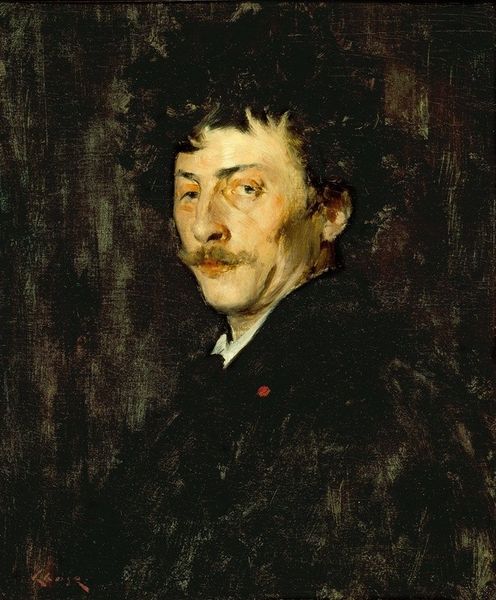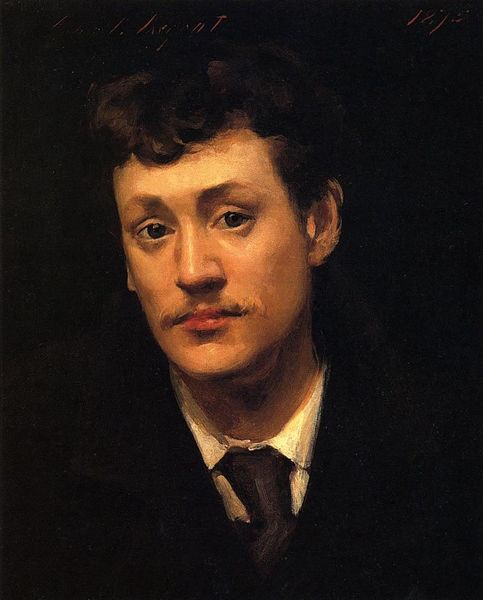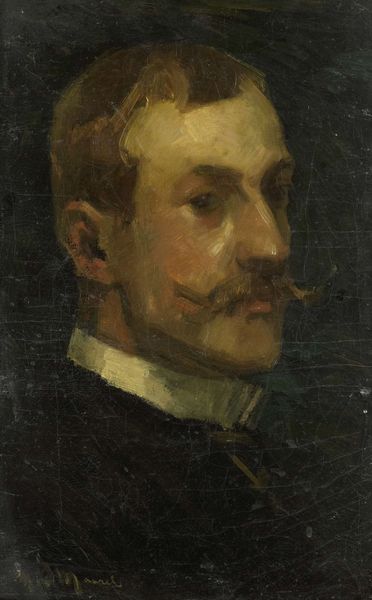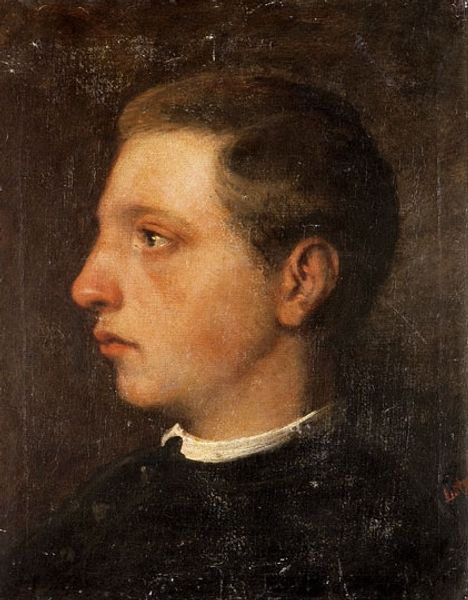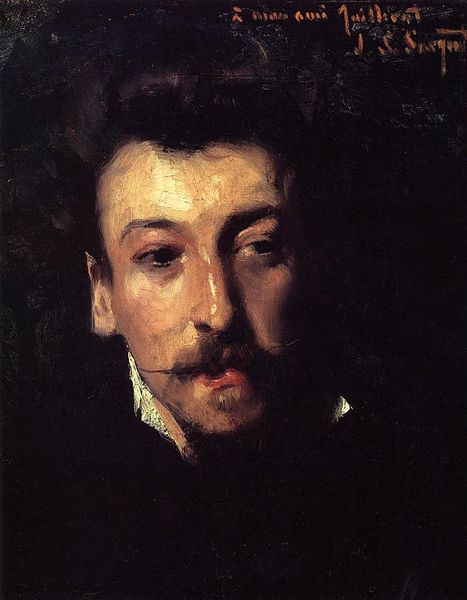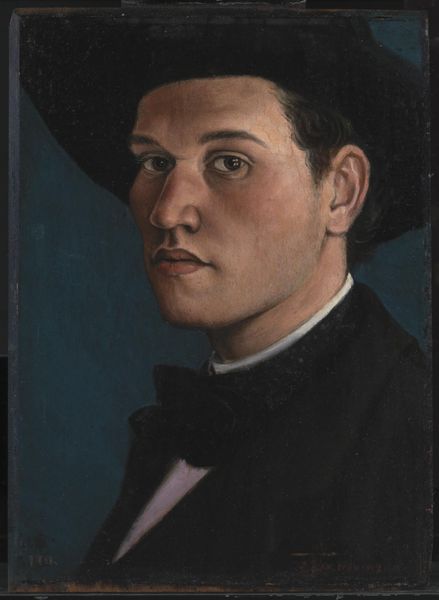
Copyright: Public Domain: Artvee
Władysław Czachórski’s “Portrait of Witold Urbański” was made in 1878 using oil on canvas. Czachórski skillfully employs traditional techniques to create a likeness but also a sense of character. Observe the layering of paint, particularly in the face, and the details, like the soft texture of the hat and the crispness of the collar. The materiality of oil paint—its viscosity, opacity, and ability to blend—allows Czachórski to model forms with light and shadow, giving the portrait a three-dimensional quality. The brushwork varies from smooth to textured, adding depth and visual interest. Consider the labor involved in preparing the canvas, mixing the paints, and applying them layer by layer. Portraiture like this reflects the rise of a middle class with the means to commission such works, and the establishment of a market for art beyond purely religious or aristocratic patronage. Looking closely at the materials and making allows us to appreciate not just the artist's skill, but also the broader social and economic context in which the artwork was created.
Comments
No comments
Be the first to comment and join the conversation on the ultimate creative platform.
